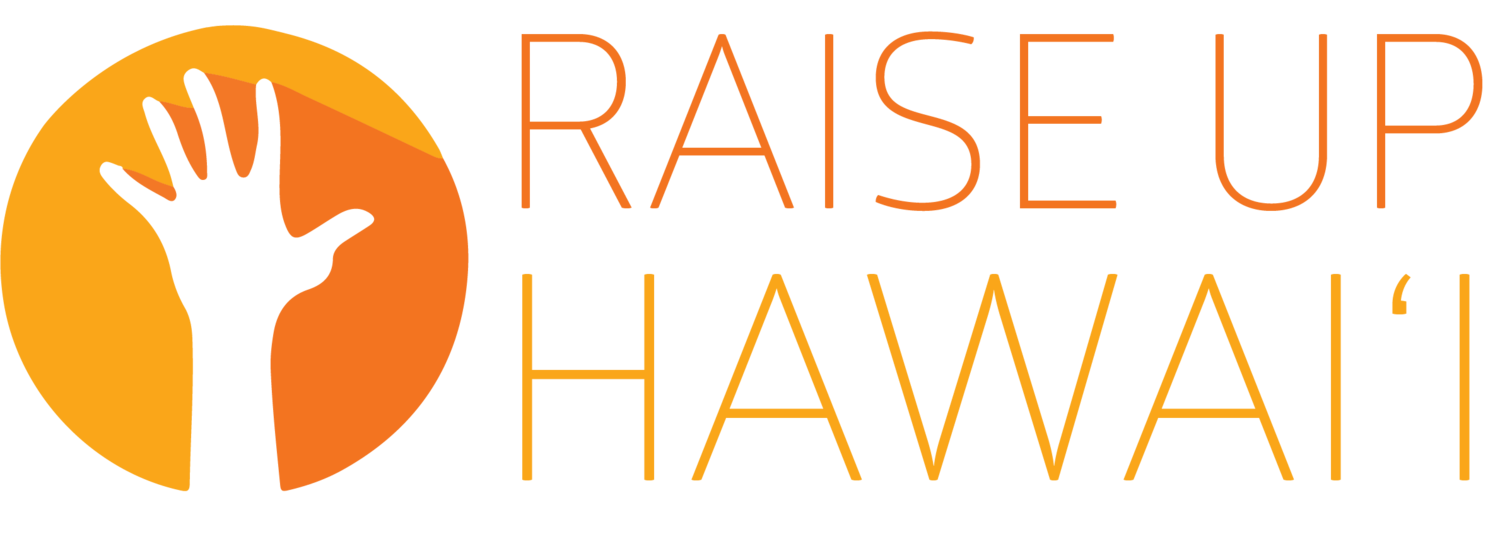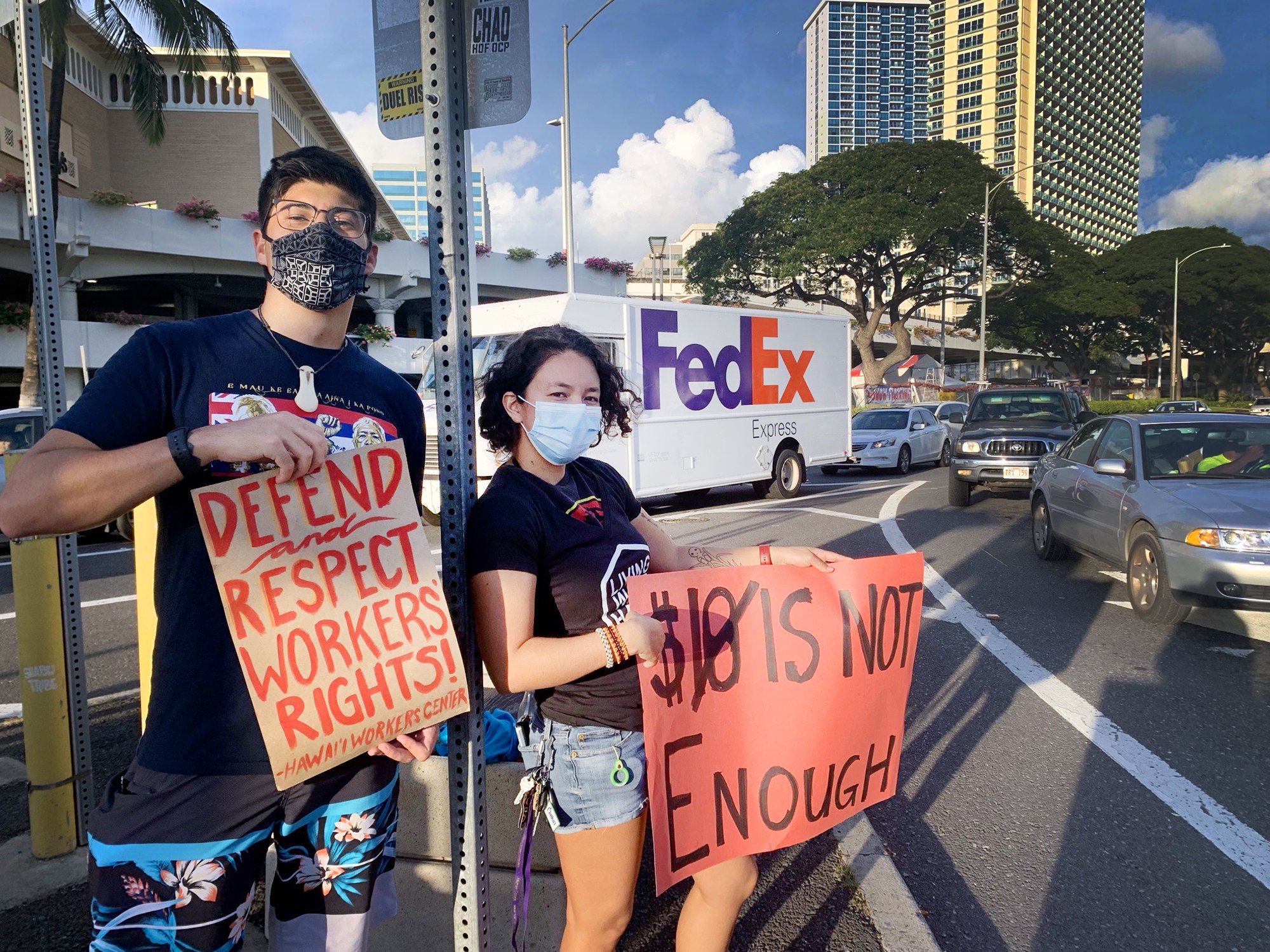Raise Up Hawaiʻi coalition wants state economy to work for all, not just tourists and wealthy corporations
The Raise Up Hawaiʻi coalition, formed to push for the creation of a living wage policy in the State of Hawaiʻi, is hosting community sign-waving events (so far in the Waipahu, Kalihi, Iwilei and Ala Moana neighborhoods) to build visible public support ahead of the 2022 legislative session.
Members of the media are encouraged to attend the next event this Thursday, which will include opportunities to interview workers and coalition members on-site.
WHAT: Sign-Wave for a Living Wage
WHEN: Thursday, December 9, 2021, 4–5:30 PM
WHERE: Airport Baggage Claim H (ground level)
A living wage means a wage that is high enough for workers to cover their basic expenses without the need for taxpayer-funded subsidies. In 2020, according to DBEDT, a Hawaiʻi worker with no dependents needed to earn at least $17.63 an hour to reach that level of self-sufficiency.
Instead, at $10.10 an hour, Hawaiʻi’s roughly 88,000 minimum wage workers earn just $21,000 a year for 40 hours of work each week. That’s why the Raise Up Hawaiʻi coalition is supporting a bill that calls for an increase in the minimum wage to $18 an hour by the year 2026, with automatic cost of living adjustments each year afterward.
“Working a low wage job and trying to afford my schooling on top of the high cost of living in Hawaiʻi is a real challenge,” said community member Chaysen Ciacci. “To be able to afford the cost of tuition and my living expenses, I need to work a minimum of 35–40 hours a week at the same time that I’m a full-time student.”
Because of inequitable policy choices that have been made over the course of decades, a person can now work a full 40 hour week in Hawaiʻi and still not make enough to cover their most basic needs.
“It’s sad to see so many families forced to move away from Hawaiʻi in order to survive,” said community member Jhoe Rosales. “Electricity, water and utility bills are so expensive. I’m trying to help my parents pay for their house; I’m trying to make sure my family eats healthy food, but right now I have to work two jobs plus drive for Doordash just to keep surviving in Hawaiʻi.”
Policymakers have shaped an economy that relies far too much on extractive tourism that provides little to residents in return and fails to adequately steward Hawaiʻi’s precious—and limited—natural resources.
“Hawaiʻi’s economy is working for tourists, but it’s time for it to work for all of us,” said Nate Hix, director of Living Wage Hawaii. “It’s Hawaiʻi’s workers that keep the economy running, but they can only do that when they are paid a fair and livable wage.”
These policies are making it harder each year for Hawaiʻi residents to succeed. Hawaiʻi’s population is declining, in part, because an increasing number of residents are leaving the state for more affordable locals.
That’s bad for all of us, including businesses, which need customers to survive. With 2/3rds of the state’s economy dependent on consumer spending, it is essential that workers earn not just enough to barely scrape by, but enough to participate in the consumer economy by spending money at local businesses.
“If the past two years dealing with the COVID-19 pandemic have made anything crystal clear, its that Hawaiʻi policymakers will bend over backward to keep the tourism industry going while doing next to nothing to improve the lives of the very same supposedly essential workers that keep that industry—and Hawaiʻi’s economy—going,” said Christy MacPherson, Lead Community Developer for Hawaiʻi Appleseed Center for Law & Economic Justice. “It’s time for that to change. It’s time to Raise Up Hawaiʻi.”







